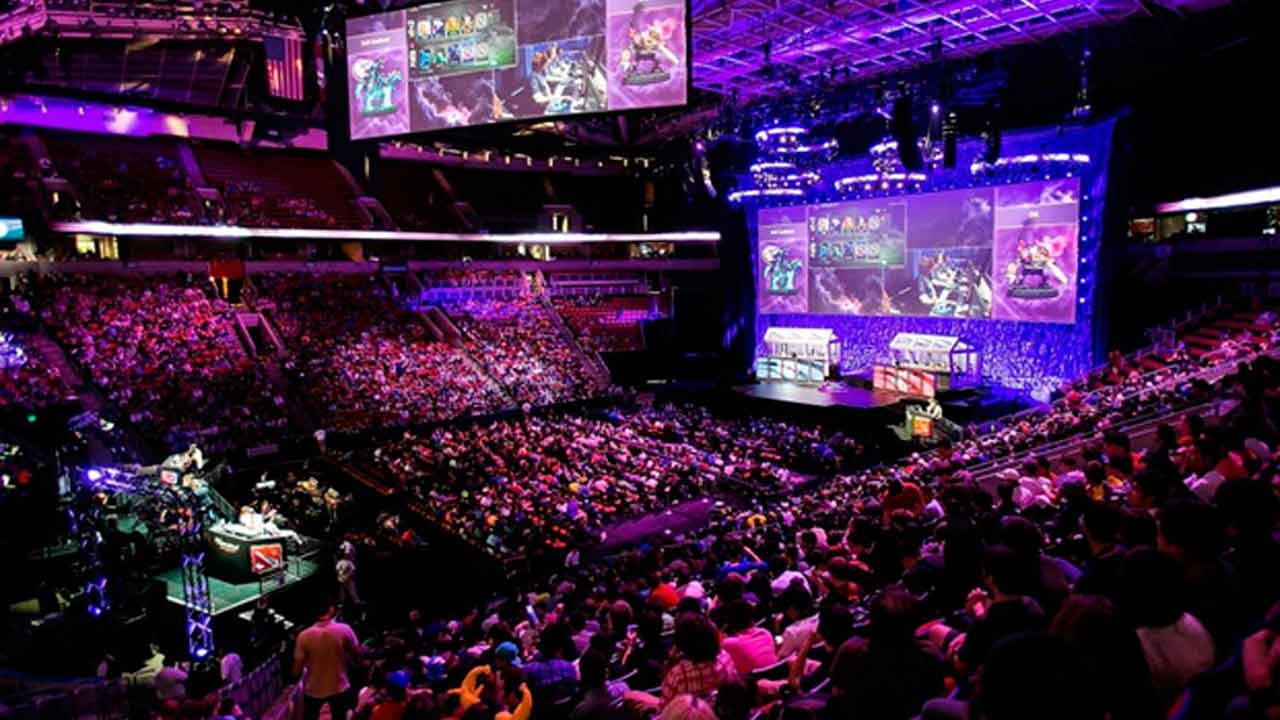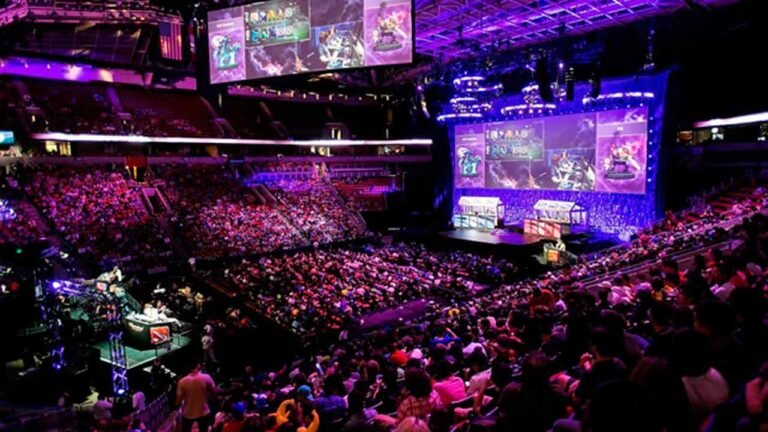
Introduction to School Esports
The landscape of competitive gaming has undergone a remarkable transformation in recent years, transitioning from a niche hobby to a burgeoning field of interest within educational institutions. School esports represent a unique blend of traditional competition and modern technology, garnering attention not only for their entertainment value but also for their educational potential. This evolution signifies that esports are now recognized as a legitimate discipline within schools, promoting teamwork, strategic thinking, and digital literacy among students.
As esports gain traction, the figure of students participating in competitive gaming has grown exponentially. Recent statistics indicate that over 200 colleges in the United States have established esports programs, and the student engagement in this segment continues to rise. The competitive nature of esports has proven to captivate this generation, providing an interactive platform for students to showcase their skills and passions. Consequently, many educational institutions have begun integrating esports into their curricula and extracurricular activities, creating opportunities for students to excel in a structured, supportive environment.
The incorporation of esports in educational settings entails various advantages. Notably, students involved in esports have demonstrated enhanced problem-solving abilities, improved collaboration skills, and heightened emotional intelligence. Besides fostering these essential life skills, esports can also contribute to student retention, engagement, and community building within schools. Institutions recognize that through competitive gaming, they can create an inclusive environment where students from diverse backgrounds unite over shared interests, thereby enhancing school spirit and camaraderie.
This dynamic shift towards embracing school esports has paved the way for significant events, such as the California School Esports Championship. Such championships not only showcase student talent but also signify the potential of esports as a staple in educational arenas moving forward. As this field continues to evolve, the impact of esports on students and schools alike will undoubtedly resonate for years to come.
The Inception of California’s First School Esports Championship
The journey towards California’s first school esports championship has been marked by collaborative efforts among educational institutions, gaming companies, and local authorities. Recognizing the growing significance of esports in education, organizations came together to create a platform that would not only embrace competitive gaming but also foster essential life skills among students. The increasing popularity of esports, coupled with its potential to engage a diverse student body, inspired this initiative, merging academic goals with a dynamic recreational activity.
Educational organizations played a pivotal role in this endeavor. Schools aimed to incorporate esports into their curricula, viewing it as a vehicle to teach teamwork, strategic thinking, and digital literacy. “We see gaming as an avenue for students to develop critical skills that are essential in today’s digital world,” commented an educator involved in the planning process. This sentiment reflects a broader recognition that esports can serve as an educational tool, promoting engagement while teaching valuable skills applicable beyond the gaming realm.
Local gaming companies also embraced their responsibility in this initiative by providing resources, including technology and expertise needed to organize the event. Their involvement highlighted the mutual benefits of collaboration, as the tournament would enhance their brand visibility while supporting the educational mission of schools. Comments from a representative of the gaming industry emphasized, “Our goal has always been to support youth engagement through gaming, and this championship perfectly aligns with that mission.”
With support from various stakeholders, the championship was designed not just as a competition, but as a community-building event, one that seeks to integrate esports into the academic fabric of California. The overarching aim is to create an environment where students can thrive, learn, and enjoy the competitive spirit of gaming, setting the stage for future growth in this evolving field.
Event Highlights and Participating Schools
The inaugural California School Esports Championship showcased a remarkable gathering of educational institutions and celebrated the rising impact of competitive gaming in the academic arena. Schools from diverse regions participated, ranging from urban centers like Los Angeles to smaller districts across the state. With over 30 teams representing numerous high schools, the championship was officially divided into various competitive segments focusing on popular games such as League of Legends, Overwatch, and Rocket League.
The tournament structure featured a series of elimination rounds, leading to intense semi-finals and culminating in an electrifying grand final. Each match was characterized by high-stakes gameplay, strategic planning, and remarkable teamwork. Spectators were treated to edge-of-their-seat performances; highlights included an incredible comeback by the West High team in the League of Legends finals, which fostered a palpable sense of excitement among fans and participants alike.
Throughout the championship, students exhibited not only exceptional gaming skills but also sportsmanship, reinforcing the communal aspect of esports. Challenges arose during the matches, such as connectivity issues and unexpected player disqualifications, but these obstacles were met with resilience, further strengthening the bonds between teams and their supporters. Feedback from participants underscored the emotional highs and lows experienced during the competition, with students expressing profound pride in representing their schools and forming friendships beyond the battlefield.
The atmosphere of camaraderie was palpable as coaches and spectators alike cheered for their teams, creating an exhilarating backdrop for the championship. The event proved to be more than just a competition; it served as a platform for students and educators to engage in meaningful discussions about the role of esports in fostering teamwork, strategy, and academic engagement. The testimonials echoed a unified sentiment: this championship marked a significant milestone in the integration of esports within educational frameworks.
The Future of Esports in Education
The potential for esports in educational settings is vast and multifaceted, presenting a myriad of opportunities for both students and institutions. As school esports programs gain traction, we can anticipate significant expansion in this field. More schools are likely to adopt esports as a legitimate extracurricular activity, recognizing its ability to foster skills such as teamwork, problem-solving, and strategic thinking, much like traditional sports.
One notable advantage of integrating esports into educational frameworks is the scholarship opportunities it presents. As many colleges and universities begin to establish esports teams, they also offer scholarships to talented players. This creates a pathway for students to pursue higher education while capitalizing on their passion for gaming. Additionally, as the gaming industry continues to grow, careers related to esports are blossoming, ranging from game design and development to event management and marketing. This emergence provides students with clear career pathways that align with their interests, supporting a future workforce equipped for modern job demands.
Nevertheless, the incorporation of esports into education is not without its challenges. Balancing gaming with academic responsibilities is crucial to ensure that students do not neglect their studies. Educators and administrators must prioritize fostering a culture of healthy gaming, encouraging moderation and supporting students in time management. Furthermore, it is vital to dispel any misconceptions regarding esports, ensuring that it is viewed as a constructive activity rather than a mere distraction.
While the evolution of esports in education holds promise, its success will largely depend on strategic implementation, ongoing engagement with stakeholders, and a commitment to creating an environment where students can thrive academically and socially. The future of esports in education indeed signifies a new era that could redefine not just competitive gaming, but also the overall educational landscape.




